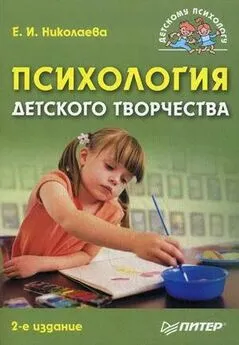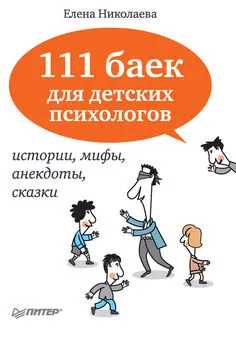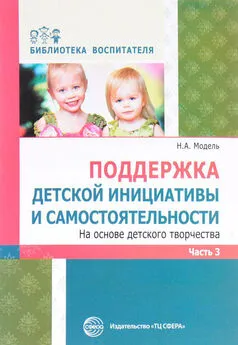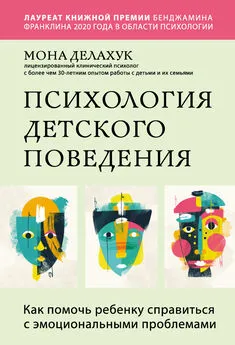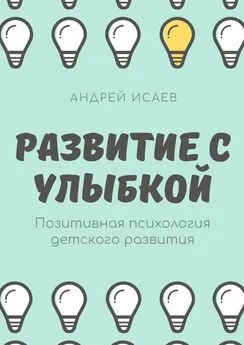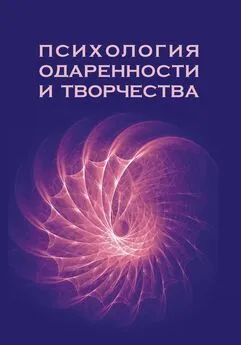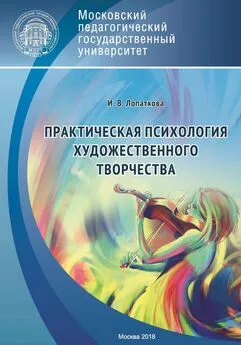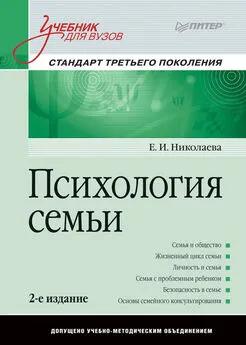Елена Николаева - Психология детского творчества
- Название:Психология детского творчества
- Автор:
- Жанр:
- Издательство:Издательство «Питер»046ebc0b-b024-102a-94d5-07de47c81719
- Год:2010
- Город:Санкт-Петербург
- ISBN:978-5-49807-489-4
- Рейтинг:
- Избранное:Добавить в избранное
-
Отзывы:
-
Ваша оценка:
Елена Николаева - Психология детского творчества краткое содержание
Во втором, переработанном и дополненном, издании иллюстрированного учебного пособия рассмотрены: понятие творчества, психофизиологические особенности детского дошкольного возраста, факторы, влияющие на проявление творчества у детей. Проанализированы виды детского творчества: художественное, музыкальное, словесное, игровое. Особое внимание уделено совместному творчеству ребенка и взрослого, ведущему к формированию целостной личности ребенка и совершенствованию ее у взрослого.
Для психологов, педагогов, воспитателей, а также студентов профильных факультетов высших учебных заведений.
Психология детского творчества - читать онлайн бесплатно ознакомительный отрывок
Интервал:
Закладка:
238. Jung R. E., Haier R. J. The Parieto-Frontal Integration Theory (P-FIT) of intelligence: Converging neuroimaging evidence // Behavioral and brain sciences. 2007. V. 30. P. 2–147.
239. Klosovskij B. N. The development of the brain and its disturbance by harmful factors. New York, 1963.
240. Lau S., Li W. L. Peer status and perceived creativity: Are popular children viewed by peers and teachers as creative? // Creativity Research Journal. 1996. V. 9. P. 347–352.
241. Maddi S. Creativity is strenuous // The University of Chicago Magazine. 1973. V. 66. N 2. P. 18–23.
242. Maddi S. Creativity and Health: Do the Gods Give Two Good Things to One Person. Presidential Address, АРА Division 10 (Psychology and the Arts), АРА Meeting, Washington, D. C., August 1982.
243. Milgram, R. M. Creative out-of-school activities in intellectually gifted adolescents as predictors of their life accomplishments in young adults: A longitudinal study. Creativity Research Journal. 1989. V. 12. P. 77–88.
244. Moneta, G. В., Siu, С М. Y. Trait intrinsic and extrinsic motivations, academic performance, and creativity in Hong Kong college students // Journal of College Student Development. 2002. V. 43. P. 664–683.
245. Moran J. D. Creativity in Young Children / Creativity, Intelligence and Personality // Annual review of psychology. 1981. V. 32. P. 61–72.
246. Moran J. D. III, Milgrim R. M., Sawyers J. K., Fu V. R. Original Thinking in Preschool Children // Child development. 1983. V. 54. P. 921–926.
247. Neubauer A. C, Grabner R. H., Freudenthaler H. H., Beckmann J. E, Guthke J. Intelligence and individual differences in becoming neurally efficient // Acta Psychologica. 2004. P. 55–74.
248. Ong W. J. Orality and literacy// The technologazing of the Word. Bristol, 1982.
249. Pariser D., van den Berg A. Universal trajectory or modernist artifact? A preliminary cross-cultural test of Gardner's hypothesis of U-curved aesthetic development. Paper presented at the meeting of the American Psychological Association, New York, 1995.
250. Piaget J. The origins of intelligence in children. New York: New York University Press, 1952.
251. Piaget J., Inhelder B. The child's conception of space. London: Routledge, Kegan Paris, 1956.
252. Piaget J., Inhelder B. Psychologie de l'enfant. Paris, 1966.
253. Poincaré H. The foundations of science. New York: Science House, 1929.
254. Posner M. I. Attention in cognitive neuroscience: an overview // The cognitive neuroscience / Ed M. S. Gazzaniga. Cambridge, MA: MIT, 1995. P. 615–624.
255. Reid G. Education through art. L.: Reid G. Education through art. L. 1958.
256. Richards R., Kinney D., Benet M., Merzel A. Assessing Everyday Creativity: Characteristics of the Lifetime Creativity Scales and Validation With Three Large Samples //Journal of Personality and Social Psychology. 1988. V. 54, N 3. P. 476–485.
257. Rothenberg A. Einstein' creative thinking and general theory of relativity: a documented report // American Journal of Psychiatry. 1979. V.136. N 1. P. 38–43.
258. Rothenberg A. Psychopatholopgy and creative cognition. A comparison of hospitalized patients, Nobel laureates and controls // Archives of General Psychiatry. 1983. V. 40, N9. P. 937–942.
259. Runco M. A. The creativity of children's art // Child Study Journal. 1989. V. 19. P. 177–189.
260. Runco M. A. The evaluative, valuative, and divergent thinking of children //Journal of Creative Behavior. 1991. V. 25. P. 311–319.
261. Runco M. A. Creativity as optimal human functioning. In M. Bloom, T. P. Gullotta (Eds.), Promoting creativity across the lifespan. Washington, DC: Child Welfare League of America, Inc, 1991. P. 17–44.
262. Runco M. A. The creativity research handbook (V. 1). Cresskill, NJ: Hampton, 1997.
263. Runco M. A. Albert R. S. Parents' Personality and the Creative Potential of Exceptionally Gifted Boys // Creativity Research Journal. 2005. V. 17, N. 4. P. 355–367.
264. Runco M. A., Ebersole P., Mraz W Creativity and self-actualization // Journal of Social Behavior amp; Personality. 1991. V 6. P. 161–167.
265. Russ S. W Affect and creativity: The role of affect and play in the creative process. Hillsdale, NJ: Lawrence Erlbaum Associates, Inc., 1993.
266. Russ S. W, Kaugars A. S. Emotion in Children's Play and Creative Problem Solving // Creativity Research Journal. 2001. V. 13, N. 2. P. 211–219.
267. Sayil M. Children's drawings of emotional faces // British Journal of Developmental Psychology. 2001. V.19. P. 493–505.
268. Scheibel А. В., Paul L. A., Fried I., Forsythe А. В., Tomiyasu U., Wechsler A., Kao A., Slotnic J. Dendric organization of the anterior speech area // Experimental Neurology. 1985. V. 87, N 1. P. 109–117.
269. Schonen de S., Mathivet E. First come, first served: a scenario about the development of hemispheric specialization in face recognition during infancy // Canadian Journal of Psychology and Cognition. 1989. V. 9. N. 1. P. 3–44.
270. Seifert С M., Meyer D. E., Davidson N, Patalano A. L., Yaniv I. Demystification of cognitive insight: Opportunistic assimilation and the prepared mind perspective. In R. J. Sternberg, J. E. Davidson (Eds.). The nature of insight. Cambridge, MA: MIT Press, 1995. P. 65–124.
271. Seja A. L., Russ S. W. Children's fantasy play and emotional understanding. Journal of Clinical Child Psychology. 1999. V. 28. P. 269–277.
272. Shure M. B. How to think, not what to think: A problem solving approach to prevention of early high-risk behaviors. In А. С Bohart D. J. Stipek (Eds.). Constructive and destructive behavior: Implications for family schools, and society. Washington, DC: American Psychological Association, 2000. P. 271–290.
273. Simon H. A., Gilmartin K. A simulation of memory for chess position // Cognitive psychology. 1973. N 5. P. 29–46.
274. Simonton D. K. Foresight in insight? A Darwinian answer. In R. J. Sternberg amp; J. E. Davidson (Eds.), The nature of insight (p. 465–494). Cambridge, MA: MIT Press, 1995. P. 465–494.
275. Smith E R. Social and Fantasy Play between young children. Sternberg (ed). Cambridge: Cambridge University Press, 1988. P. 43–75.
276. Smith G. J. W., Carlsson I. Creativity in middle and late school years. International Journal of Behavioral Development. 1985. V. 8. P. 329–343.
277. Smolucha L. W., Smolucha E С A fifth Piagetian stage: The collaboration between analogical and logical thinking in artistic creativity // Visual Arts Research. 1985. V. 11. P. 90–99.
278. Spearman С General Intelligence. Objectively determined and measured. American Journal of Psychology, 1904. V. 15. P. 201–293. http://psychclassics.yorku.ca/Spearman/
279. Sternberg R. J. Handbook of creativity. Cambridge: Cambridge University Press, 1999.
280. Stokes P. D. Learned variability theory: Implications for creativity // Creativity Research Journal. 1999. V. 12. P. 37–45.
281. Terman L. M. Genetic studies of genius: Vol. 1. Mental and physical traits of a thousand gifted children. Stanford, CA: Stanford University Press, 1925.
282. Torrance E. P. The nature of creativity as manifest in its testing // The nature of creativity / R. J. Traube T Valeur diagnostique des dessins // Archive of Psychology. 1937. V 26. P. 285–309.
283. Torrance E. P. A longitudinal examination of the fourth grade slump in creativity. Gifted Child Quarterly. 1968. V. 12. P. 195–199.
284. Torrance E. P. The nature of creativity as manifest in its testing // The nature of creativity / R. J. Sternberg (ed)/ Cambridge: Cambridge University Press, 1988. P. 43–75.
285. Trehub S. E. Infant's perception of musical patterns // Perception and Psychophysics. 1987. V. 41, N 6. P. 635–641.
286. Trehub S. E., Schellenberg E. G., Hill D. C. The origins of music perception and cognition: a developmental perspective // Perception and cognition of music/ I. Deliege, J. L. Sloboda e. a.(eds) Hove(England): Psychology Press; Erlbaum; Taylor and Francis, 1997. P. 103–128.
287. Trevarthen С Intersubjective exchange and transfer of understanding in infancy // British Journal of Educatiion Psychology. 1978. V. 48. P. 106–112.
288. Wallach M. A. Creativity. In Carmichel's manuel of child psychology. V. 1, edited by P. H. Mussen. New York: Wiley, 1970.
289. Ward W. С Creativity in Young Children // Journal of creative behavior. 1974. V. 8. P. 101–106.
290. Ward Т. В., Smith S. M., Vaid J. Conceptual structures and processes in creative thought. In T B. Ward, S. M. Smith. Vaid (Eds.). Creative thought: An investigation of conceptual structures and processes (pp. 1-27). Washington, DC: American Psychological Association, 1997. P. 1–27.
291. Wehner L., Csikszentmihalyi M., Magyari-Beck I. Current approaches used in studying creativity: An exploratory investigation // Creativity Research Journal. 1991. V. 4, N 3. P. 261–271.
292. Williams E E. Models for encouraging creativity in the classroom by integrating cognitive-affective behaviors // Educational Technology. 1969. V. 9, N 12. P. 7–13.
293. Williams E E. Creativity assessment packet examiner's manual. Austin, TX: PRO-ED, 1993.
294. Winner E. Gifted children: Myths and realities. New York: Basic Books, 1996.
295. Winnicott D. W Playig and reality. London, 1971.
296. Wittgenstein L. Philosophical investigations, trans. G. E. M. Anscombe. New York: Macmillan, 1953.
297. Woodworth, R. S. Experimental psychology. New York: Holt, 1938.
298. Wu С H., Cheng Y, Ip H. M., McBride-Chang С Age Differences in Creativity: Task Structure and Knowledge Base // Creativity Research Journal. 2005. V. 17, N. 4. P. 321–326.
Примечания
1
Суровцева С. С. Исследование сенсомоторных реакций и слуховой памяти как предпосылок развития креативности и музыкальных способностей у детей старшего дошкольного возраста // Герценовские чтения. СПб.: Изд-во РГПУ, 2003. С. 301–305.
Интервал:
Закладка:
